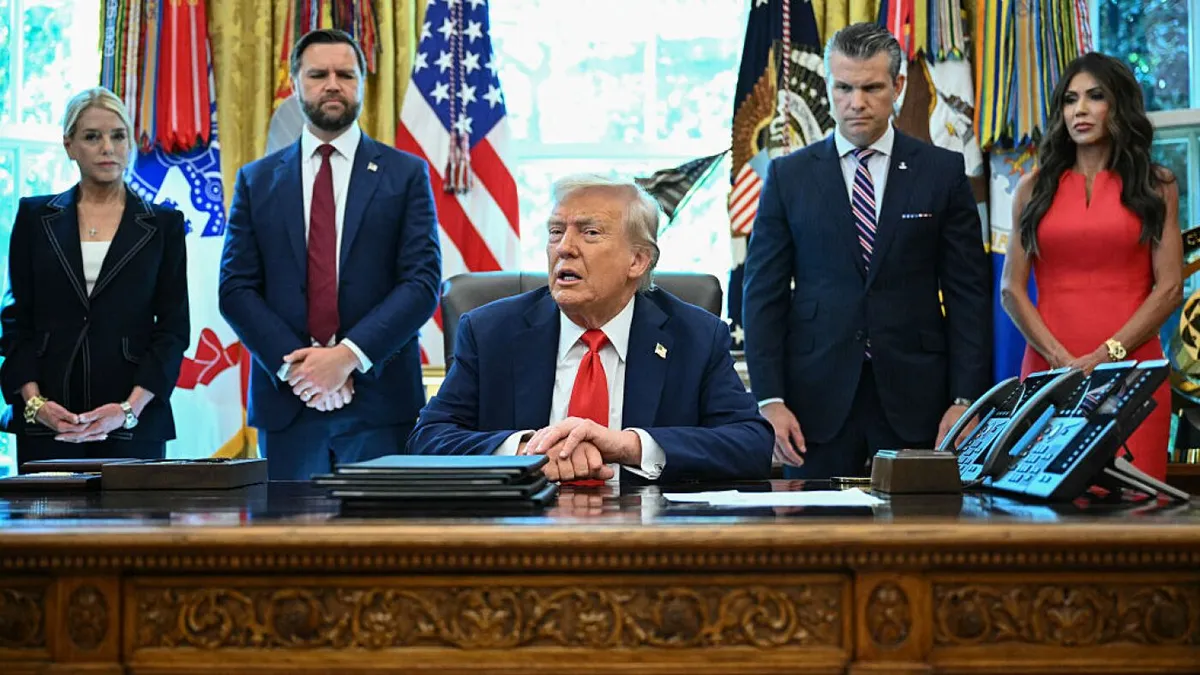
On Monday, President Donald Trump asserted that the U.S. military stands prepared to deploy to any city facing significant crime issues, regardless of whether local governors request such assistance. This statement comes amid rising concerns about public safety and crime rates in various urban areas across the nation.
During a signing ceremony at the White House, Trump unveiled an executive order aimed at creating a specialized National Guard unit. This unit is designed to assist local law enforcement in Washington, D.C., with the potential to extend its operations across the country. The primary focus of this initiative is to quell civil disturbances and maintain public order whenever necessary.
Trump emphasized the importance of collaboration, stating, “We want to go from here to other places. But I was telling some of the people that in a certain way, you really want to be asked to go.” He expressed reluctance to intervene in a city uninvited, citing concerns over interactions with what he described as “corrupt politicians.”
Last week, Trump hinted that Chicago might be the next city targeted for a federal crackdown on crime. However, when questioned on Monday about deploying federal troops to Chicago, he remained noncommittal, stating, “I may or may not send in federal troops to Chicago.” He noted the absence of a formal request from Illinois Governor J.B. Pritzker, saying, “I didn't get a request from the governor. Illinois is affected maybe more than anybody else.”
In response to Trump's remarks, Chicago Mayor Brandon Johnson, a Democrat, expressed strong opposition. During an interview with NPR's Morning Edition, he declared that any military deployment in American cities would be both illegal and costly. Johnson firmly stated, “The city of Chicago is not calling for American troops to occupy American cities. It's not democratic. It's unconstitutional.” He further noted that his office had not received any communication regarding potential military deployment from the White House.
As the situation unfolds, the implications of Trump's executive order and potential military involvement in cities like Chicago raise significant questions about public safety, legal boundaries, and the relationship between federal and local authorities. The discourse surrounding this issue highlights the ongoing challenges cities face in dealing with crime and the varying responses from local leaders.